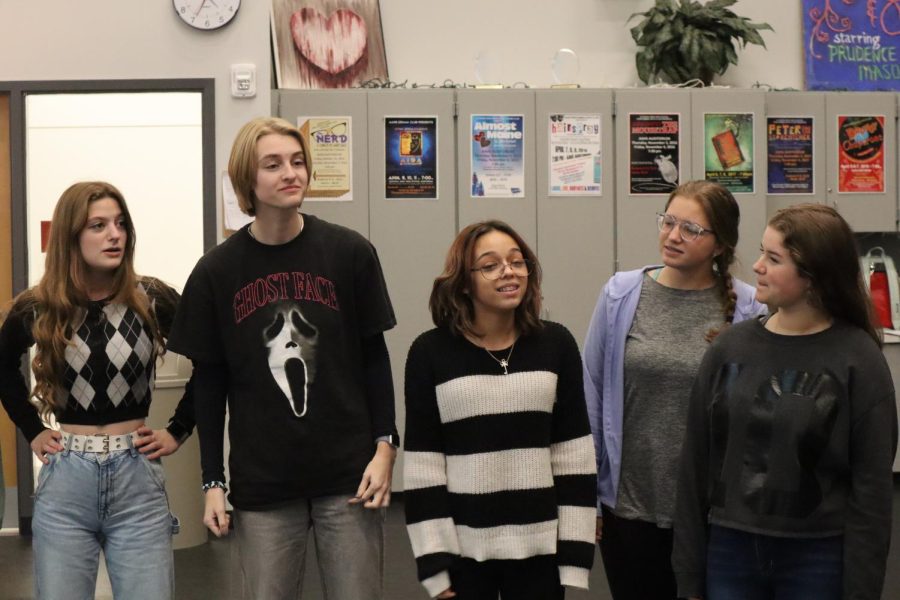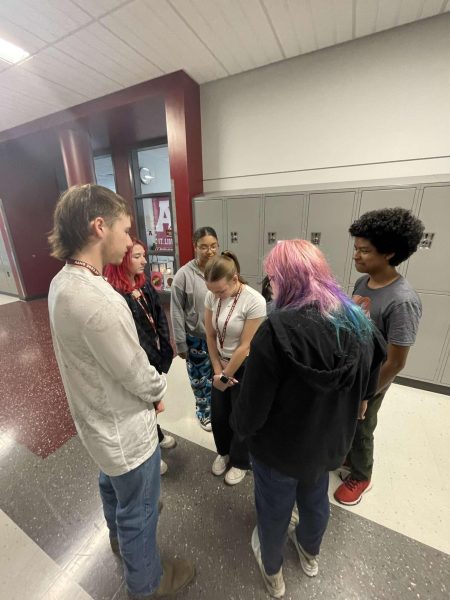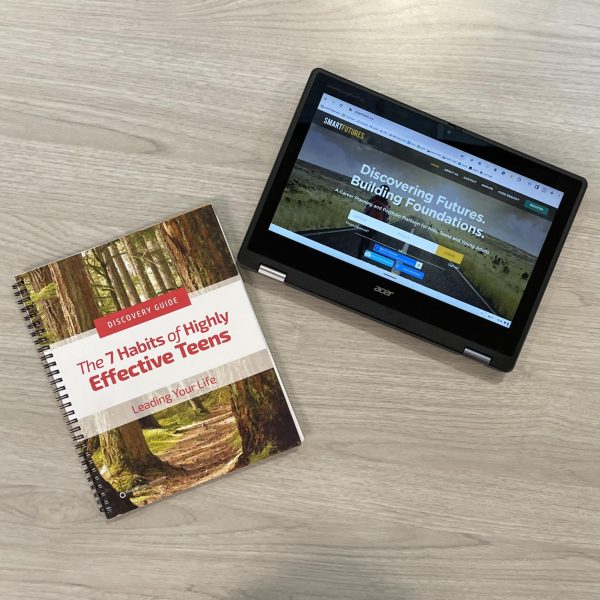Clubs are crucial to help student development
Meeting time. Clubs constantly hold meetings to discuss current events and get caught up on club activities.
Involvement in clubs and student organizations has become an integral aspect of a well-rounded education. These extracurricular activities offer students valuable opportunities to hone new skills, pursue their interests and make meaningful connections with peers.
One of the prime benefits of these groups is the chance to develop leadership skills. By assuming leadership roles, students learn to work with others, make decisions and manage projects. This is particularly important for students who may lack leadership opportunities in their personal or academic lives. These skills are highly valued by employers and crucial for success across various careers.
Participation in clubs and organizations also helps students build confidence and self-esteem. By contributing to these activities and gaining recognition for their efforts, students feel a sense of achievement, and are motivated to pursue their goals and interests with greater determination. Confidence and self-esteem are essential for success in all aspects of life, including personal relationships and academic and career pursuits.
Another key aspect of these groups is the opportunities they offer students to connect with peers who share similar interests. This fosters a sense of community and belonging, and provides students with valuable networks for future academic and career opportunities. The connections made through these organizations can last a lifetime and provide valuable resources and support beyond graduation.
Clubs and student organizations can also broaden a student’s education by exposing them to a diverse range of subjects and perspectives not typically covered in the classroom. For instance, a student interested in environmental science might join an eco-club and learn about current environmental issues and participate in projects that aim to make a positive impact. This exposure to new ideas and perspectives can broaden a student’s understanding of the world and enrich their education.
Groups such as these can also provide valuable opportunities for personal growth and development. By participating, students learn new skills, explore their interests, challenge themselves and build character in order to prepare for future challenges. Whether it’s teamwork, overcoming obstacles, or effective communication, the skills and experiences gained through clubs and student organizations can help students develop a strong sense of self and prepare for future challenges.
Clubs also serve as a platform for students to express their creativity and develop artistic talents. For example, a photography enthusiast can join a photography club, participate in photo shoots, edit images, and collaborate with peers to create compelling works of art. This can help students tap into their full potential, explore their interests, and gain personal fulfillment often difficult to find in traditional academic settings.
These groups also provide students with the opportunity to give back to their communities and make a positive impact on the world. Many focus on different forms of volunteering and community service and applying their skills and interests to real world problems. This not only helps to build character and purpose, but also makes a lasting impact on others.
In today’s competitive job market, a well-rounded education that includes involvement in clubs and organizations can give students a competitive edge in their job search after graduation. Besides developing key skills and experiences, participation in these activities demonstrates a student’s initiative, commitment and leadership capabilities, particularly for those who may lack other opportunities to stand out.
Participation in these groups can also enhance a student’s college application and increase their chances of being accepted into their desired university. Admissions officers often seek students who have taken advantage of opportunities to get involved and make the most of their education. Involvement in clubs and organizations demonstrates a student’s commitment to personal and academic growth, as well as their ability to balance multiple responsibilities.
It’s worth mentioning that clubs and organizations can also be a lot of fun. They provide students with the chance to connect with like-minded peers, engage in meaningful activities, and develop skills and talents in a supportive and enjoyable environment.
The importance of clubs and student-run organizations in schools and universities cannot be overstated. These activities play a critical role in the development of students by helping them to develop leadership skills, build confidence and self-esteem, connect with others, expand their education, and ultimately grow as individuals. Schools and universities should therefore do everything they can to support and encourage students to get involved in these valuable activities. By doing so, they can help to prepare the next generation for success in all aspects of life.

This is my second year on the newswriting staff. I mostly write opinion columbs on topics that I find important. This year, I plan to start a podcast with...

My name is Ryan Longstreth, and I'm a senior. This is my second year on the Mountain Echo staff! I've always loved creative writing and have been writing...







![The release of Lisa Frankenstein on February 9, 2024, has made it the best movie of the year so far. [Made with Canva]](https://aahsmountainecho.com/wp-content/uploads/2024/04/LisaFrankenstein-cover-1-450x600.jpg)
![Rivals. Spotify and Apple Music are the most even on the streaming-service playing field. Spotify was officially launched in 2008, and Apple Music in 2015. [Made with Canva]](https://aahsmountainecho.com/wp-content/uploads/2024/04/Spotify-vs-Apple-music-600x600.png)
![Lets go Bucs! The Pirates 2024 season started on March 28 with a game against the Marlins. [Made with Canva]](https://aahsmountainecho.com/wp-content/uploads/2024/04/Pirates-season-underway-600x600.jpg)


